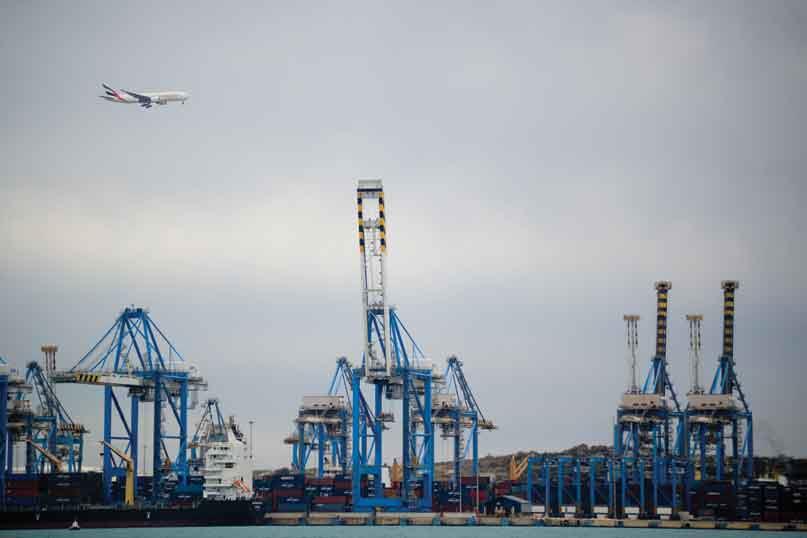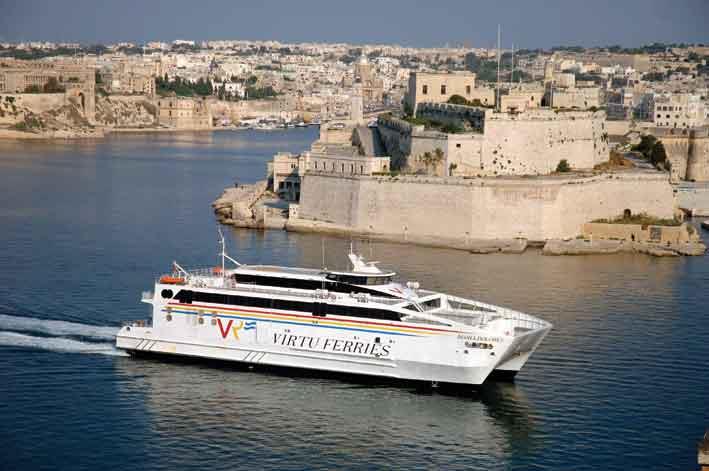The absence of harmonisation on excise duty throughout the European Union means that Customs Officials often face difficulties when products subject to the tax, enter the country and are only able to ‘examine when [they] have reasonable suspicion’ that illegalities are taking place , Customs Department Head Joseph Chetcuti has told The Malta Independent.
Chetcuti also highlighted an often unsung department that has been able to deliver significant results over the last couple of years.
Excise Duty in Malta is a subject that generates substantial controversy with a nation seemingly divided as to whether the authority does too much, or too little.
With local traders and retailers insistent that a lack of enforcement of goods that moves around through the EU has resulted in unfair competition through individuals who dodge paying excise duty on products entering into Malta; and larger international companies and organisations putting pressure to ensure the free movement of goods and competitiveness in a market where people demand things in the shortest time possible.
“It is a big headache moving products because we have to work in line with the EU Principle of free movement of goods. On one hand, if we are too rigid, we are criticised for working against single market rules; and if we are too open people say that we are creating an uncompetitive environment for local traders and retailers.”
“It is a balancing act between working in line with these fundamental principles, and the moral obligation to examine the goods entering the country. Both sides of the argument have very valid reasons.”

Chetcuti also explained that there appears to be a perception that a number of illegalities take place through the catamaran from Sicily, which he believes to due to the high frequency of the ferry. He added that this is not the case, given that there are three major regular shipping routes including the catamaran, which are Grimaldi and Tirrenia.
Chetcuti insists that these shipping routes are properly controlled.
What is import duty and excise duty?
There are two basic taxes placed on products; import duty, which is on non-EU products and is paid on the first point of entry into the European Union. 80% of this tax goes towards the EU Commission, while 20% is used for the administrative and operational costs of the member state’s customs authority.
The goods are examined upon first entry point, then are classified as EU products and can move across thusly.
The excise duty is a national tax placed on items that are selected according to the prerogative of the member state. These products which are under duty in the member state are examined using a scanner, known as the Excise Movement Control System.
There are only three products that have an excise duty in every country of the EU. Tobacco; energy (fuels), and alcohol are all subject to harmonisation by the EU. There is a minimum excise duty placed on the products, but every state has the right to state to select the amount above it.
These are taxes not paid upon purchase but by importers when they receive the goods.

When the three products move between EU member states, they are placed under duty suspicion, and are housed and examined in a tax warehouse within the country.
The importer is to submit a bank guarantee for the product, and is taken should issues arise with the goods, which is then transferred to the host country and then disturbed there.
In Malta, there are excise duties on non-alcoholic drinks, including water, toiletries and household products, and construction materials.
An excise duty usually has to be justified to be commission, which is usually introduced for social, health, environment and international political reasons.
For example, the government has placed an excise duty of non-alcoholic beverages, such as soft drinks, due to their high sugar content.
Chetcuti admitted that excise duty within EU member states is relatively low, unlike the situation in Malta.
A Customs Authority that delivers results
Chetcuti lamented that the positive news of the authority’s success does not necessarily translate into an increased public interest into the customs department.
The customs department have appeared in the news over the last year or so after a number of high profile drug busts took place, including a discovery of 300kg of cocaine in container that supposedly held can of pineapple at the Malta Freeport in March 2017.Checuti also revealed that once the load is released by the Police, the authority will invite members of the press to witness it’s disposal.

the first five months of 2017 saw 10.5 million counterfeit cigarettes, 5,580 sports shoes and 180 polo shirts were hauled by Malta Customs, breaking the Department’s annual record in just the first five months of the year, and were thusly awarded with the ‘National Public Body Award’ at the Global Anti-Counterfeiting Awards 2017.
“Maybe it is our choice in the way that we do our work that has led to the perception that custom officials are not present. We use a number of non-uniformed officers, paesani, so people think that no officials are there.”
“We actually stop a lot of cars, with the information we acquire through the Guardia di Finanza in Italy and the Maltese police.”
There were 128 inspections in the previous month, with 31 taking place over the last week, and 7 over the previous weekend.
“Sometimes we cannot intervene, because these vehicles will be under controlled deliveries in order to find the end receiver, to tackle the wider circle of criminality”.

“It is important that we work together in order for the bigger picture to become a reality.”
“In fact the government is working to create a joint enforcement task force, dedicated to tackling issues with fiscal excise duty, to assess unfair competition.”
“We’re looking to work with the VAT department, and the Retail and Trade Unit in order to begin using audits to examine who is avoiding excise duty on products.”
“We want to be able to control the sector without the need for human intervention.”
There has also been substantial EU investment in mobile scanning centres, which are able to move around vehicles and are able to detect better hidden compartments, and sniffer dogs for the customs department.
“Kennels will now be introduced in Malta, and the dogs will be trained to find drugs, tobacco, and money by next year.”
“There is the possibility to increase the number of scanners on each ship, but the lack of space and human resources prevents us.”
“At the end of the day, we will always try to find a balance. Though I sometimes think that if we found a balance, someone would still complain.”